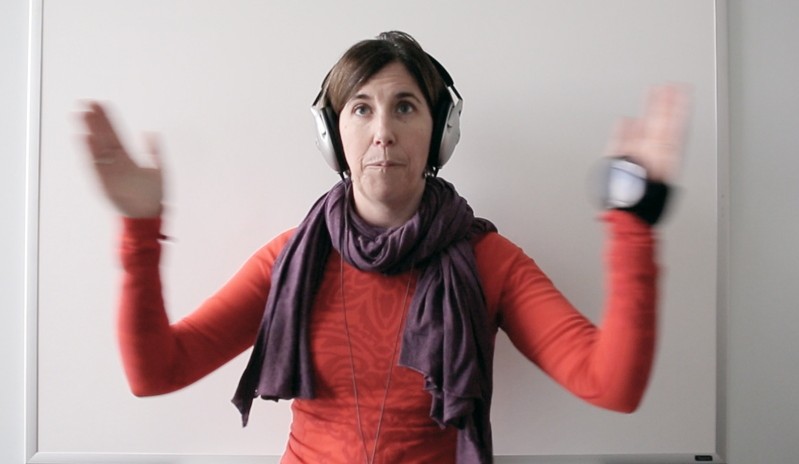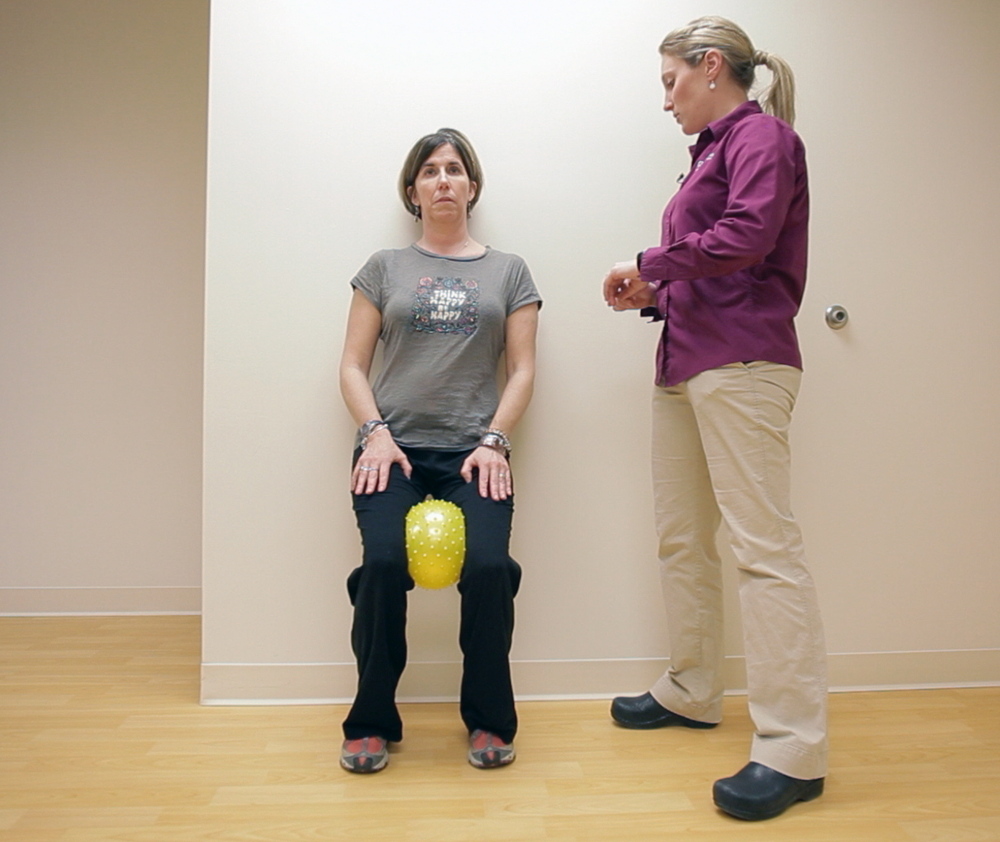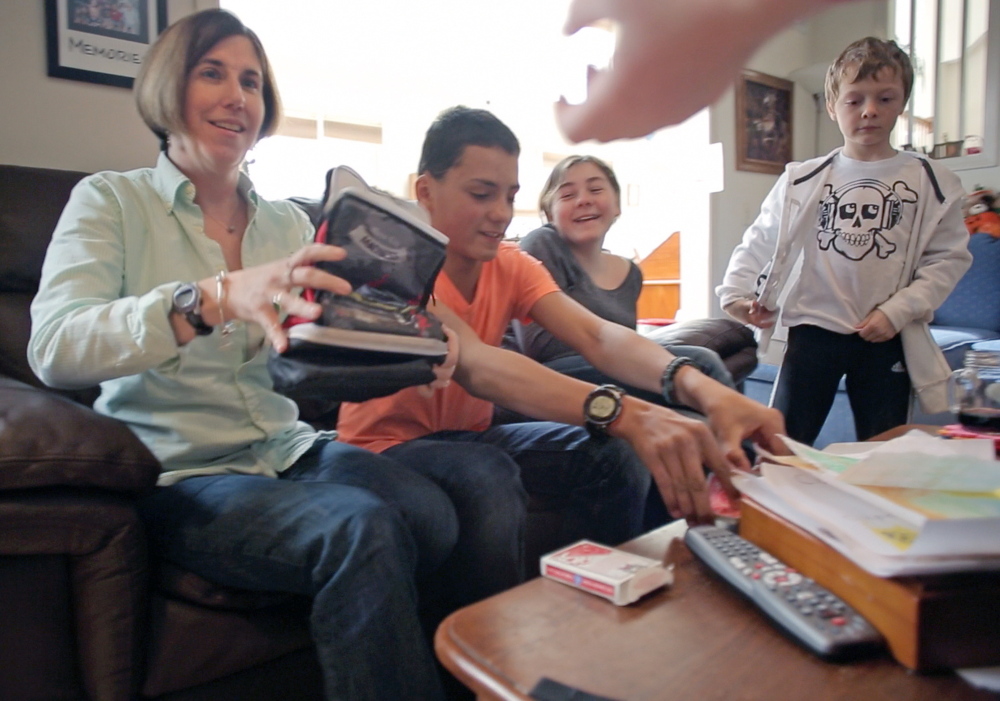For Meredith Bell, there’s no going back.
She’ll never be the person she was prior to March 5, 2013. That’s the day she slipped in an icy parking lot and hit her head, causing a traumatic injury to her brain.
Within a few hours of her fall, Bell, 43, was suffering from nausea and a splitting headache. Within a few days, she couldn’t walk without feeling like she was going to tip over.
Her short-term memory was gone. She’d grope for words and couldn’t complete sentences. She was exhausted, all the time.
The impact on her vision, she says, was frightening.
“I physically could not get the muscles of my eyes to move my eyes at all,” Bell says.
But worst of all was the inability of her injured brain to handle noise or confusion.
“If more than one person were talking,” Bell says, “I literally would become ill.”
When you’re a special-needs kindergarten teacher and the mother of five, that’s challenging.
Devastating might be a better word.
Simple things that she once cherished, like welcoming her children home from school with a hug, were now out of the question. So was going back into a classroom.
Bell spent most of the day in bed.
“She didn’t act like herself,” says her 13-year old son, Parker. “She didn’t look herself. And I was just really worried cause she’s never acted this way.”
Bell, a glass-is-half-full kind of person who loves to laugh and who had always put others first, was suddenly the one who needed help.
Her husband, Chris, says the entire family dynamic changed overnight.
“It was a life-changing event in every sense of the word, emotionally, for the children,” he says. “It happened so fast and now it has such a long-lasting impact.”
Bell’s mother, Beth Childs, who barely left her side for the first six months, says watching her daughter struggle has been heart-wrenching.
“I’ve said to everyone we’ve gone to, all the doctors: ‘I know she’s your patient. But she’s my little girl,’ ” Childs says.
According to the U.S. Centers for Disease Control and Prevention, 2.5 million Americans – 10,000 of them Mainers – suffer a traumatic brain injury every year. Falls are the most common cause.
Some people recover quickly with few consequences. In other cases, the resulting symptoms may be severe – including changes in personality, physical and cognitive problems, and the loss of short-term memory.
For Bell, the road to recovery began in earnest the minute she started occupational, speech and physical therapy at Goodwill NeuroRehab Services in Portland.
In a brightly lit gym on the second floor of Goodwill’s offices on Washington Avenue, physical therapist Lydia Cote rolls something that looks like a rope ladder onto the polished oak floor. Bell grimaces.
“Have I told you lately that I hate this exercise?” she says.
It involves jumping sideways across the squares of rope. She may hate it, but she’s mastered it. When she first started physical therapy, Bell couldn’t jump at all. Her brain wasn’t able to send a signal to tell her feet to move.
Today she hops side to side with ease.
In another exercise, this one to strengthen her balance and concentration, she walks toe to toe across the gym floor as Cote walks behind her shouting out simple math problems.
“Five plus two?” says Cote.
Bell pauses to think for a few seconds before she answers.
And for just a moment you see the pain and frustration on her face.
“I used to teach math,” she says.
Dr. Mark Kiefner, the clinical director of Goodwill NeuroRehab and Bell’s neuropsychologist, says frustration goes with the territory.
“People get frustrated with themselves because they look in the mirror, ‘Jeez, I look pretty good.’ And yet they can’t do the same things they did before.”
What makes it tougher, says Kiefner, is that brain injuries are often invisible.
“(Some) people look exactly the same. If you look at Meredith, you’d think she looks terrific. And yet she’s struggling with attention, concentration, memory, visual problems.”
For many, recovery is an agonizingly slow process.
“We are constantly talking about how pushing through is the wrong paradigm,” Kiefner says. “What you want to do is push until you start to have symptoms, and then back up. Then push until you have symptoms, then back up and let your brain rest.”
For Bell, that’s easier said than done.
Still, despite the frustrations, she has made tremendous progress in the past 16 months.
On a chilly spring afternoon, her 8-year-old twins, Evan and Amber, come bounding through the door of their home in New Boston, New Hampshire, and practically jump into Bell’s lap.
“OK, where does this stuff go, lovebug?” she says, handing Amber her backpack.
Noise and confusion, while still difficult, are at least more manageable now. She’s able to spend much more time with her children. Her balance has improved and her vision is better.
But she still tires easily. She has to focus, hard, to do simple chores such as cooking. She still can’t drive or read.
Going back to teaching isn’t in the cards. At least not yet.
“The hardest thing for me has been my kids,” she says. “Although I think they’ve learned some things, they’ve still lost a year with their mother. I think they’re still waiting for her to come through the door and just show up.”
That’s not going to happen.
“One of the things that they stress,” Bell says, “is that you’ll never be the person you were. You have to kind of give that up.”
Her son Parker says that’s OK.
“I’m not expecting her to go back to the old mom. The new one is fine. I just want us to be a family again,” he said.
That’s Meredith Bell’s goal, too. That – and speaking out about the consequences of traumatic brain injury – and the need for all of us to keep in mind how easily it can happen.
“I talk to people all the time,” she says. “If I see a kid riding a bike without a helmet, I stop them. I don’t care if they think I’m a crazy old lady.”
Send questions/comments to the editors.




